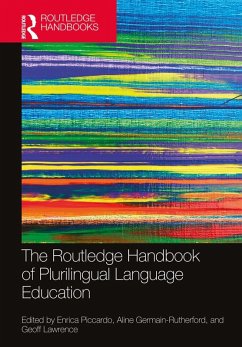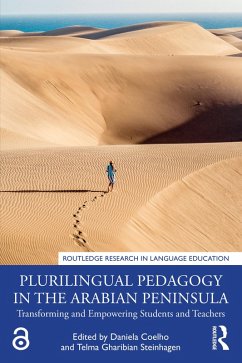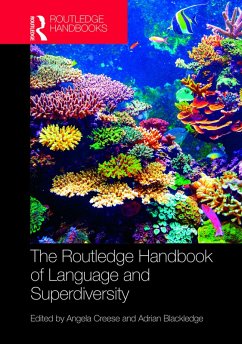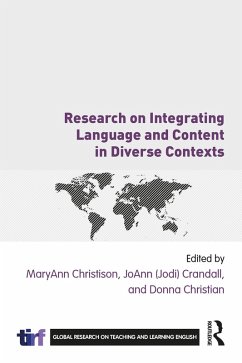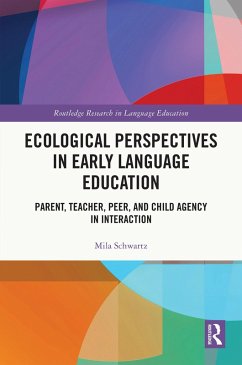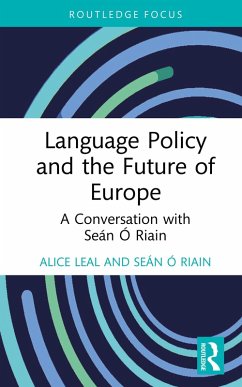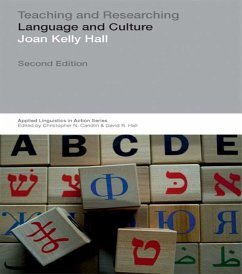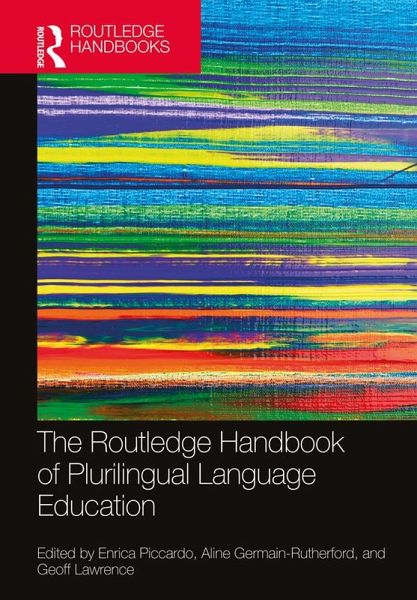
The Routledge Handbook of Plurilingual Language Education (eBook, ePUB)
Versandkostenfrei!
Sofort per Download lieferbar
43,95 €
inkl. MwSt.
Weitere Ausgaben:

PAYBACK Punkte
22 °P sammeln!
The Routledge Handbook of Plurilingual Language Education is the first comprehensive publication on plurilingualism, offering a multidimensional reflection on the nature, scope, and potential of plurilingualism in language education and society.Authored by a range of internationally recognized experts, the Handbook provides an overview of key perspectives on plurilingualism in a complementary range of fields. After a comprehensive introduction to the concept itself, 24 chapters are organized in six parts, each examining plurilingualism through a different lens. The Handbook spans historical, p...
The Routledge Handbook of Plurilingual Language Education is the first comprehensive publication on plurilingualism, offering a multidimensional reflection on the nature, scope, and potential of plurilingualism in language education and society.
Authored by a range of internationally recognized experts, the Handbook provides an overview of key perspectives on plurilingualism in a complementary range of fields. After a comprehensive introduction to the concept itself, 24 chapters are organized in six parts, each examining plurilingualism through a different lens. The Handbook spans historical, philosophical, and sociological dimensions, examines cognitive and neuroscientific implications, and the limitations of boundaries before moving to a pragmatic perspective: How is plurilingual language education developing in different contexts around the world? How can it contribute to language revitalization? How can it be expected to develop in education, digital spaces, and society as a whole?
Written for an international audience, this handbook is an indispensable reference tool for scholars in education and applied linguistics, educators, graduate and post-graduate students, and policy makers.
Authored by a range of internationally recognized experts, the Handbook provides an overview of key perspectives on plurilingualism in a complementary range of fields. After a comprehensive introduction to the concept itself, 24 chapters are organized in six parts, each examining plurilingualism through a different lens. The Handbook spans historical, philosophical, and sociological dimensions, examines cognitive and neuroscientific implications, and the limitations of boundaries before moving to a pragmatic perspective: How is plurilingual language education developing in different contexts around the world? How can it contribute to language revitalization? How can it be expected to develop in education, digital spaces, and society as a whole?
Written for an international audience, this handbook is an indispensable reference tool for scholars in education and applied linguistics, educators, graduate and post-graduate students, and policy makers.
Dieser Download kann aus rechtlichen Gründen nur mit Rechnungsadresse in A, B, BG, CY, CZ, D, DK, EW, E, FIN, F, GR, HR, H, IRL, I, LT, L, LR, M, NL, PL, P, R, S, SLO, SK ausgeliefert werden.




